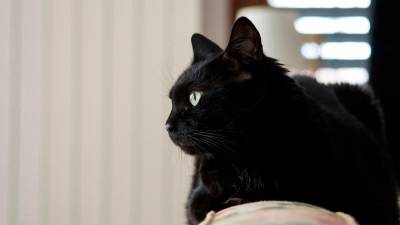MALAYSIANS are a strange breed when it comes to superstition. Rational? Maybe not. Malaysian? Absolutely. Walk down any street, visit a home or scroll through WhatsApp and you will see it everywhere.
Our lives are a patchwork of good-luck rituals, bad-omen warnings and very specific dos and don’ts that sometimes defy logic but never fail to entertain.
Take cats, for instance. Black cats? Cross your path and suddenly the nasi lemak tastes too salty, the traffic jam feels longer and your phone won’t stop buzzing. We take this very seriously.
Once, my neighbour’s cat strolled across my driveway and my mother immediately stopped me from leaving the house. “Better wait five minutes, don’t risk it,” she said.
When the cat finally meandered off, my mom exhaled as though the universe itself had given its approval.
Numbers, of course, come with their own drama. When I was in college, my father once refused to rent me a room with the unit number 44. “Too unlucky,” he said.
We ended up taking the unit numbered 48. My mother muttered something about feng shui, my father muttered something about ghosts and I muttered, “I’m the one living here. I just want a place with a decent kitchen!”
Astrology and horoscopes add yet another layer. I had a friend who refused to get married on a Saturday because it was “unlucky”.
Another colleague won’t start a project unless the moon is in a certain constellation.
And WhatsApp forwards? They tell you which days to wash your hair, sweep your porch or eat meat. Ignore them at your own risk because in Malaysia, that is practically tempting fate.
Even money isn’t safe from superstition. Whether it is donating specific amounts, picking “lucky” lottery numbers or topping up prepaid cards with auspicious digits, we treat numbers like cheat codes for life.
I once saw my neighbour carefully pay a bill with RM17.17 instead of RM17, proudly declaring it would bring him good luck. He swore the rest of the week went smoothly. Coincidence? Maybe. Malaysian? Absolutely.
Daily habits come with their own list of rules. Stepping over someone’s feet is a no-no – apparently it stunts growth. My niece tripped over her cousin’s foot and immediately pointed at it like it was a crime scene, muttering, “Aiyo, I kena already!”
And then there are the classics: don’t sweep after sunset, don’t cut nails at night and don’t whistle indoors. It is exhausting, absurd and somehow comforting.
Even food and home rituals get caught up in it. My aunt refuses to cut bananas with a knife on certain days, claiming it brings bad luck. Neighbours warn against pouring water after sunset.
Spilling rice? That means someone in the family will quarrel. I once saw a friend step onto a cracked pavement slab, then immediately backtrack and go around it, muttering, “Aiyo, better not, bad luck nanti!’
The beauty of all this? It is harmless, hilarious and utterly Malaysian. We may laugh at our own rituals but we follow them anyway. Often with a wink and a “better-safe-than-sorry” shrug.
Superstitions give structure to chaos and a sense of control in a world that often feels random.
And there is a generational twist. Older Malaysians are hardcore believers while the younger ones treat it as half-joke, half-content for Instagram. But even the most skeptical teenagers secretly check their horoscopes or whisper, “Better not step on that crack”. Because Malaysian superstition is contagious. You may roll your eyes but you will still hesitate before sweeping after sunset.
At the end of the day, superstition here is more than belief; it is culture, comedy and community rolled into one. From cats to numbers, horoscopes to house rituals, it is everywhere – at home, at work and even on WhatsApp. Rational? Probably not. Fun, chaotic and uniquely Malaysian? Absolutely.
So, the next time someone warns you about a black cat or insists you check the stars before making a decision, just smile, nod and maybe do it anyway. These quirks are what make life here colourful, unpredictable and endlessly entertaining.
Malaysians may not always follow logic but we follow our hearts and sometimes those hearts come with a healthy dose of superstition.
Hashini Kavishtri Kannan is the assistant news editor at theSun. Comments: letters@thesundaily.com
